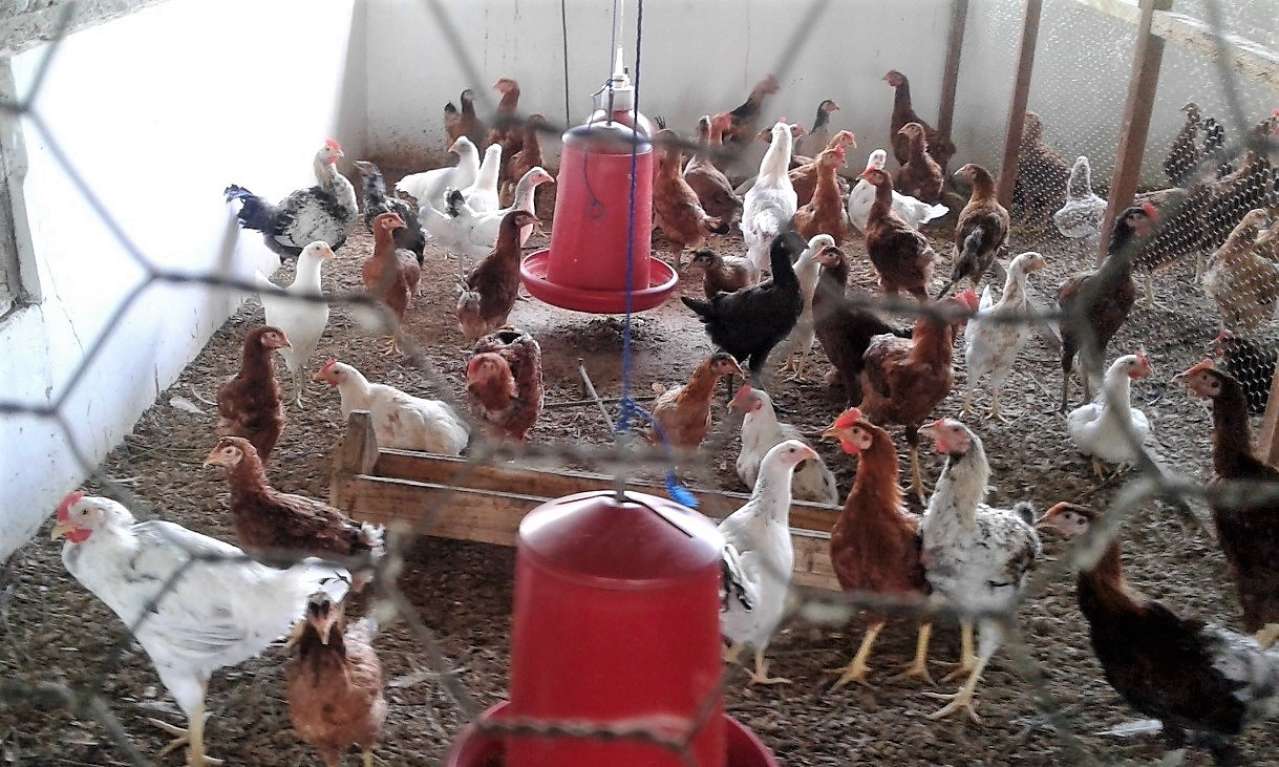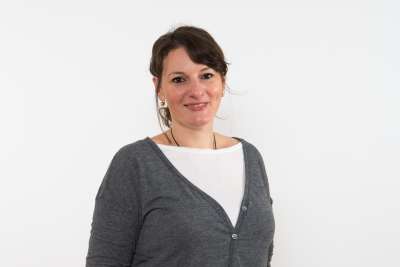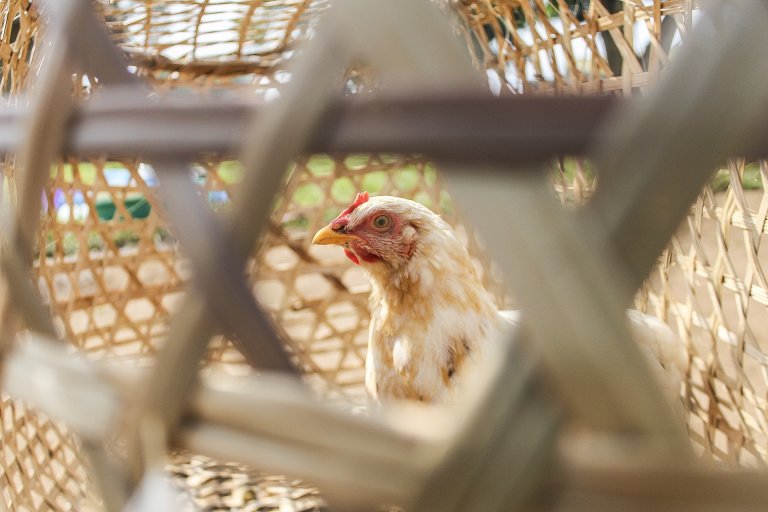Aiming to increase the quality of African meat production

Photo: Dr. W. Quaye, CSIR - Science and Technology Policy Research Institute, Ghana.
The demand for livestock and poultry products is growing faster than the production in African countries. Local meat production covers part of the demand, while the rest is met by imports. The major constraints for production are inadequate feeds in terms of quality and quantity, diseases, poor genetics, and lack of commercial orientation. A new project, funded through the LEAP-Agri program of the EU, aims to assist small-scale producers to become competitive, both in the national and international markets.
The project is called SPEAR, Empowering Small-scale Farmers towards the Sustainable Development Goals through Participative, Innovative and Sustainable Livestock and Poultry Value Chains. Its overall objective is to improve productivity and quality of local livestock and poultry value chains in Senegal, Ghana, and Kenya.
Focus on small-scale producers
The global population is increasing, climate is changing and consumers are becoming increasingly aware of what they are buying. Food manufacturers around the world face new challenges related to efficiency, operational adaptations and quality requirements.
In many African countries, agriculture is the most important economic sector. However, livestock and poultry production is largely dominated by small-scale producers who are struggling to keep up with demand and meet the quality standards both in local and international markets. In addition to the constraints of production, much of the challenge regarding quality is attributed to inadequate knowledge about quality standards as well as limited and poor storage and processing facilities of small-scale producers, forcing them to continue marketing their products locally and through informal channels.
Giovanna Ottaviani Aalmo, a researcher from NIBIO - Norwegian Institute of Bioeconomy Research, leads the SPEAR project.
– The challenges are related, inter alia, to storage and production facilities that cannot meet European food safety requirements, says Ottaviani Aalmo.
– We want to teach manufacturers how to improve their operating conditions. We will look at how the production can be optimized so that the individual producer can deliver more meat with better quality.
High quality animal feed is expensive
In order to produce sufficient high quality meat, the livestock need to be fed sufficient and nutrient-rich feed. Protein is an important ingredient in animal feed. However, good protein sources like soybeans and fishmeal are expensive and may have to be imported. In addition, they are often associated with negative environmental impacts. In an environment of general feed scarcity, both in quantity and quality terms, one needs to be innovative to address the feed challenge.
Therefore, one of the areas the researchers will explore is finding alternative protein sources that do not compete for resources that may otherwise be used as food for the growing human population.
Insects are a good protein source
– We will find alternative protein sources that farmers can produce themselves, which cost far less and which is not a burden on the environment. Among other things, we will look at solutions with insects.
Insects are protein rich and are increasingly considered as good alternatives to supplement conventional protein sources harvested from the field. Here in Norway, only certain insects are allowed to use. These are black soldier fly, flour beetle, crickets and the well-known housefly.
– The climate in many African countries is particularly suitable for insects, says Ottaviani Aalmo. Best of all, it is an environmentally friendly source of protein that farmers can produce locally.
The insects can be harvested from wild populations, or be farmed to ensure a more stable supply. The dead insects are dried, crushed, and added to the animal feed.
The researchers will also look at cereals formulations as an alternative protein source. It may be a good option for many who already have good access to areas for cereal production. The disadvantage is that there will be less area to produce other food for people. In a global perspective, then, the insects may seem like an exciting alternative.
Contacts


About the project
Project name: Empowering small-scale farmers (SPEAR): towards the SDGs through participative, innovative and sustainable livestock and poultry value chains (LPVC)
Project manager in NIBIO: Giovanna Ottaviani Aalmo
Main goal: SPEAR’s goal is to empower smallholder livestock and poultry farmers through research based solutions suitable for local conditions and prove their potential contribution towards achieving the Sustainable Development Goals.
Employees:
- CSIR-Science and Technology Policy Research Institute (STEPRI) – Ghana
- Institute of Food Technology (ITA)- Senegal
- Kenya Agricultural & Livestock Research Organization (KALRO) – Kenya
- Technical University of Madrid (UPM) – Spain
- Daniel Muluwork Atsbeha – NIBIO
- Divina Gracia Rodriguez – NIBIO
- Habtamu Alem – NIBIO
Funding: Leap- Agri (H2020)
Project period: 2018-2021
Contacts

